12 Ways Jain Software Enhances Gym Management Systems
In Official Blog, Business, custom software development, Digital Marketing, Marketing, Services on Perfection
Gym
Operating a gym is not limited to having machines, trainers or coaches; but it calls for smooth functioning, excellent customer satisfaction and proficient management. Gym management can be complex due to some of the stated factors, but Jain Software’s effective solutions are aimed at making the work easier while assisting all kinds of gyms to meet their business objectives. Here are 12 ways Jain Software enhances gym management systems and transforms the fitness industry:
1. The philosophy of being a champion for, without, and with our members that informs all of our action across SMDs must also encompass comprehensive member management.
Being the unique software management of Jain, the Gym management system can handle all information related members, including their details, accounts, and payment history. The system makes it easy to:
- Track the number of persons using the track and their renewal of the membership.
- Record of stores health and fitness
- Remind participants or member organizations and groups of pending renewals or expiring memberships through automatic systems.
In this way, we can gather data from a gym and help its owners to deliver valuable services to its members, enhance the membership rate as well as members’ satisfaction.
2. The use of electronic tools facilitate automated billing and payment systematic.
It is now possible for individuals to bid farewell to payment tracking using simple note and pen. Jain Software’s gym management solution integrates automated billing features, allowing gyms to:
- Combine, create, produce, prepare, develop, generate, and issue invoices
- Use multiple payment gateways for your online selling.
- Make customers pay via subscriptions for membership services
It also eliminates much of the paperwork while also establishing a steady cash inflow and minimizing payment issues.
3. Class and Schedule Management
Coordinating fitness classes may not be easy especially to gyms that provide flexibility in the timing. Jain Software simplifies class and schedule management by providing:
- It is also useful to have a dynamic calendar of classes& trainers.
- Schedules of classes that are running live
- Cancels or reschedules and sends an urgent notification to the concerned person or group Time-management notifications
Customers of the space can schedule classes through a linked application, which will prove convenient for personnel as well.
4. Customized Trainer Administration
Incorporated into Jain Software, gym owners are in a position to pair up trainers with the gym members or class. The system includes trainer availability calendar with the corresponding schedules and KPI. It enables:
- A good combination of the trainer to the members of a group.
- Authority of mobile phone users with feedback and rating systems
- They must train them to the right level of optimality when it comes to the utilization of their own resources.
This results in improving the experiences of members as well as the management of trainers.
5. Member Mobile App Integration
The customers of today’s world, particularly the gym visitors, do not want anything complicated, and Jain Software provides that facility through a separate application on the mobile. The app allows members to:
- Order classes and individual training
- Monitor their progress as regarding the physical activities and their attendance.
- Gain access to workout routines according to the goals set along with nutrition advice.
This a mobile-first strategic planning aims at improving member interaction and thus loyalty.
6. Goods and Assets Management
Similarly, many gyms face problems with equipment management and their tracking in particular. Jain Software’s system includes inventory management tools to:
- Stay on top of equipment usage and its maintenance program
- The consumption of certain products such as protein powders or supplements should be tracked to determine their stock status.
- Alert on repairs or replacements
That way, there won’t be an element of surprise where a gym falls short in fulfilling members’ needs and wants.
7. Reporting and Analytics that reflect the depth of its operations
A company needs to have data-driven decisions to support their business development. Jain Software’s gym management system generates detailed reports on:
- Member retention rates
- Source of income and expenditure
- Most taken courses and hours of high server traffic
They ensure that gym owners understand their shortcomings, and possibly enhance their operation with a view of gaining the most profits overall.
8. The direction of advertising and publicizing an organization and its products.
In essence, member acquisition and maintenance is easier when using Jain Software’s marketing tools. The system enables gyms to:
- Send out email and text message blasts
- Promotion discount schemes and Refer Bonus
- Analyze how marketing campaigns are performing
This way, these processes eliminates the need for manual work and allow gym to be on the spotlight providing excellent fitness services while expanding its memberships.
9. Access Control and Security
It is extremely crucial to exercise high levels of security for all the members that work out in the gyms and this is something that Jain Software has put into consideration when developing its access controls. The system integrates with:
- An usage or readers based system that uses fingerprint or RFID card for accessing doors.
- Member ID card or a Quick Response (QR) code
- Supervision of the register of entries and exits
It also helps in reducing on insecurity and most importantly it deals with people getting in to the gym unauthorized.
10. An Application of Gamification There are numerous ways that gamification has helped organizations create engagement by making member engagement seem like a game.
Jain Software is equipped with some elements of gamification to encourage its members or users. These features include:
- Points for attendance or completing the fitness goals
- Challenges also involve creating leader boards for the LLCs to compete in.
- Possibility of integration with wearing fitness devices for tracking the process in real time
It helps the members create a community whereby everyone has to maintain his/her consistencies to the fitness regimen.
11. Customizable Membership Plans
Members’ needs have to be addressed differently; thus, there is always the need for flexibility with the kind of memberships offered to people. Jain Software allows gyms to:
- Develop and build plan according to an individual, family or a corporate.
- Provide monthly or annual packages or both
- Offer extras that can be purchased such as private tutoring or diet services
This versatility makes the gyms popular since they can sell themselves to a wider market hence increase their revenues.
https://www.jain.software/10-trends-jain-software-in-the-it-world
12. Flexible and Efficient Solution for Growing Organizations
Which is where modern facilities find themselves, requiring systems to scale with them as they add amenities. Jain Software’s gym management solution is scalable and can accommodate:
- New branch and other establishments
- Increased member databases
- Other features based on the needs of the business being done
This is an important one because it means that the gym owners are in a position where they can grow the business without thinking about straining the management system.
Conclusion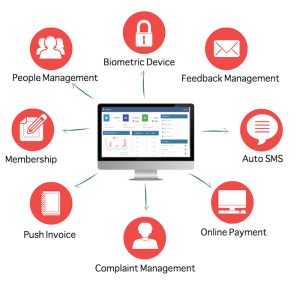
Fitness Centre management software developed by Jain Software is quite impactful as we are taking gym services to a new level, by going through technological changes, automation processes, better customer services plans and more. From effective administration to members satisfaction, Jain Software assists gym owners to manage the important aspect of their business, which is creating value for their members.
Are you ready to convert your gym into highly profitable business? Contact Jain Software now and learn, how advanced technologies can help in gym management!
Follow Social Media :
https://www.facebook.com/jainsoftware/
https://www.instagram.com/jainsoftware/
https://www.linkedin.com/company/jainsoftware
https://x.com/jainsoftware









 The next level of the digital marketing is going to drive your mind beyond your imagination. It’s time to start thinking about the next big thing that’s going to change digital marketing. Can you imagine? Think about it? What could it be? Think! The move into 2018 also comes with a shift in digital marketing. New trends are entering the marketplace and your company needs to pay attention or you may be forced by the wayside. With the need to become more visible and reach more customers, the digital marketing of tomorrow offers advancements in emerging technologies as consumers demand a more integrated experience.
The next level of the digital marketing is going to drive your mind beyond your imagination. It’s time to start thinking about the next big thing that’s going to change digital marketing. Can you imagine? Think about it? What could it be? Think! The move into 2018 also comes with a shift in digital marketing. New trends are entering the marketplace and your company needs to pay attention or you may be forced by the wayside. With the need to become more visible and reach more customers, the digital marketing of tomorrow offers advancements in emerging technologies as consumers demand a more integrated experience. It fuels a smarter view of the customer and allows AI to predict what will deliver relevant personalized customer experiences.
It fuels a smarter view of the customer and allows AI to predict what will deliver relevant personalized customer experiences.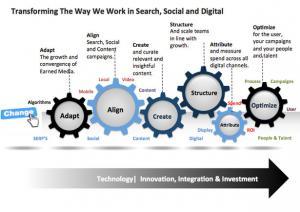 Now the question is how to integrate SEO with AI. It is going to be a huge task to understand the algorithm of an AI with the Search Engine.
Now the question is how to integrate SEO with AI. It is going to be a huge task to understand the algorithm of an AI with the Search Engine. Since brands tend to see better engagement on Instagram than any other social media platform, and because of great advertising controls, Instagram is poised to become the go-to channel for brands interested in social media marketing.
Since brands tend to see better engagement on Instagram than any other social media platform, and because of great advertising controls, Instagram is poised to become the go-to channel for brands interested in social media marketing.
 We are living in the digital era. Era’s digital desires are marked by a thirst for content. Technology is changing every second. So do marketing.  Digital marketing is growing and will keep on growing. In this tech-savvy generation, the scope of digital marketing has massively expanded. Digital marketing is both an art and a science. Successful marketing comes from collecting, analyzing and using data about when and where customers spend their time. In short, data is behavior. Learning from this behavior drives creative messaging and strategic campaigns. Tracking behavior and tapping into the emotional connection through messaging, ads, social, and design makes all the difference in the digital space.
We are living in the digital era. Era’s digital desires are marked by a thirst for content. Technology is changing every second. So do marketing.  Digital marketing is growing and will keep on growing. In this tech-savvy generation, the scope of digital marketing has massively expanded. Digital marketing is both an art and a science. Successful marketing comes from collecting, analyzing and using data about when and where customers spend their time. In short, data is behavior. Learning from this behavior drives creative messaging and strategic campaigns. Tracking behavior and tapping into the emotional connection through messaging, ads, social, and design makes all the difference in the digital space. SEO is Search Engine Optimization. SEO is responsible for the organic ranking.
SEO is Search Engine Optimization. SEO is responsible for the organic ranking.  Now the question is how content can be helpful?
Now the question is how content can be helpful? Think holistic strategy, rather than specific tactics. Each social channel, blog post, email, web-link must have a purpose and drive towards something. Never post simply to post. Without engagement or traffic, those posts are a waste of time and money. Get an understanding of your target market and their previous journeys. If they simply aren’t on Twitter or don’t interact on Facebook, cut it from your strategy. Focus your efforts without diluting resources; only do what is working and do it with all you’ve got.
Think holistic strategy, rather than specific tactics. Each social channel, blog post, email, web-link must have a purpose and drive towards something. Never post simply to post. Without engagement or traffic, those posts are a waste of time and money. Get an understanding of your target market and their previous journeys. If they simply aren’t on Twitter or don’t interact on Facebook, cut it from your strategy. Focus your efforts without diluting resources; only do what is working and do it with all you’ve got.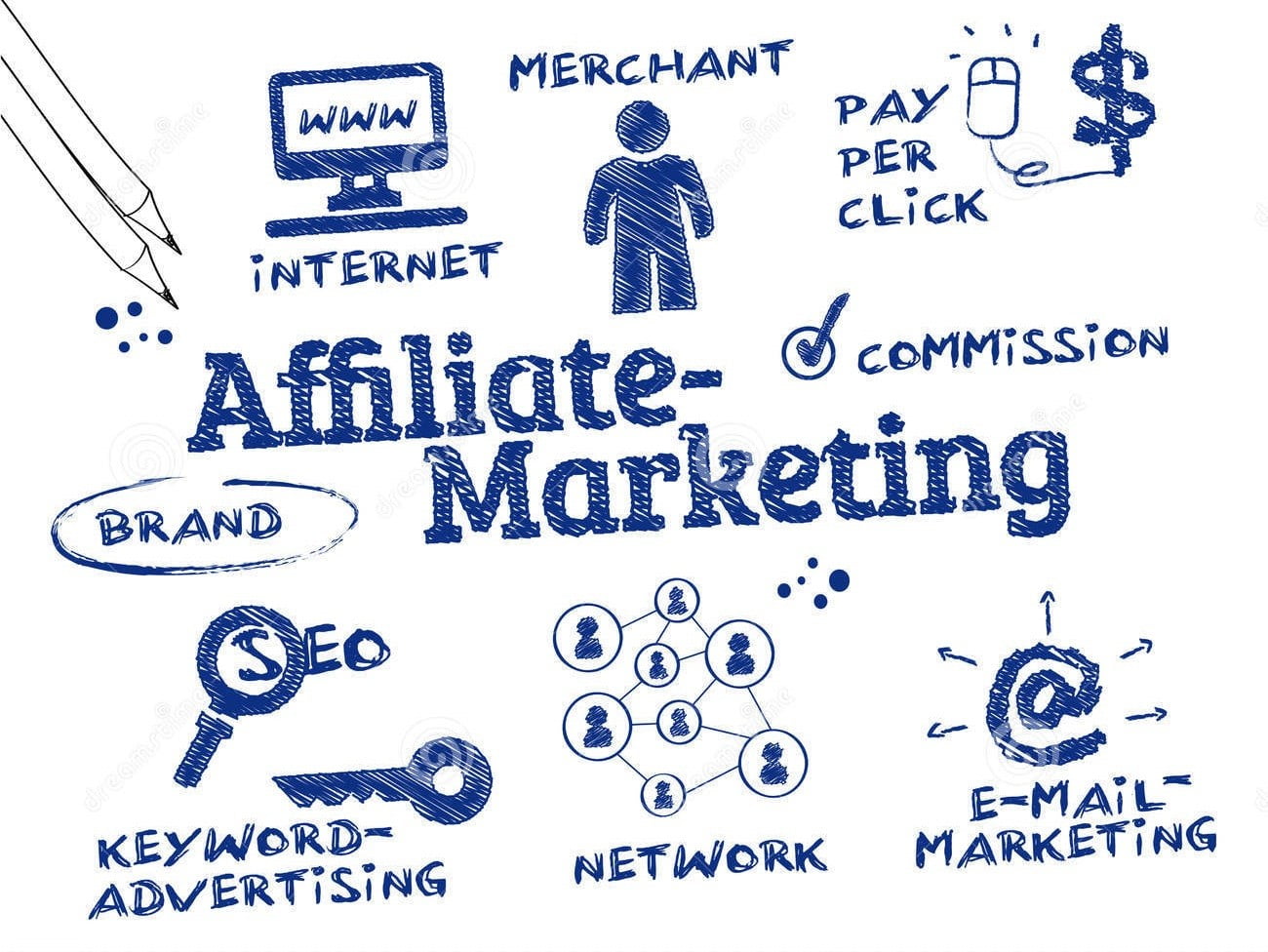
 People being Self-Employed without any investment. Careers are being shaped by just investing some time. It is the most popular marketing trending these days. Affiliate marketing is a type of performance-based marketing in which a business rewards one or more affiliates for each visitor or customer brought by the affiliate’s own marketing efforts. Affiliate marketing is the process of earning a commission by promoting other people’s (or company’s) products. You find a product you like, promote it to others and earn a piece of the profit for each sale that you make.
People being Self-Employed without any investment. Careers are being shaped by just investing some time. It is the most popular marketing trending these days. Affiliate marketing is a type of performance-based marketing in which a business rewards one or more affiliates for each visitor or customer brought by the affiliate’s own marketing efforts. Affiliate marketing is the process of earning a commission by promoting other people’s (or company’s) products. You find a product you like, promote it to others and earn a piece of the profit for each sale that you make.


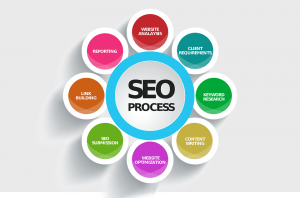 Understand the Google ranking algorithm
Understand the Google ranking algorithm Understand the importance of keyword
Understand the importance of keyword Content should be relevant
Content should be relevant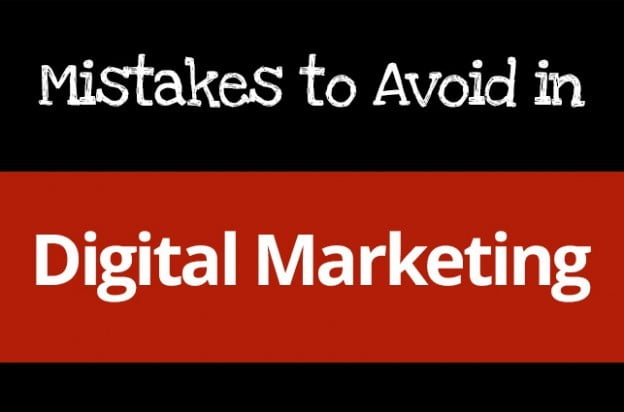
 Creating a welcoming website is one of the first things that a business needs to look at when it comes to improving its online presence. One should see it as their own home or real-estate on the web. Just like any home, an effective website is clean, neat, organized and a place everyone wants to come and hang out for a while. Today I want to talk through some of the most common missteps we see brands making in their online marketing so you can evaluate your own brand, improve your strategy and get a better response. Here I am going to talk about what to do and what not to do for making a better presentation of your brand in the digital world. There are several common areas where we see brands struggle (regardless of their industry) and, worse yet, these are areas where they get taken advantage of — all while paying a significant marketing retainer each month.
Creating a welcoming website is one of the first things that a business needs to look at when it comes to improving its online presence. One should see it as their own home or real-estate on the web. Just like any home, an effective website is clean, neat, organized and a place everyone wants to come and hang out for a while. Today I want to talk through some of the most common missteps we see brands making in their online marketing so you can evaluate your own brand, improve your strategy and get a better response. Here I am going to talk about what to do and what not to do for making a better presentation of your brand in the digital world. There are several common areas where we see brands struggle (regardless of their industry) and, worse yet, these are areas where they get taken advantage of — all while paying a significant marketing retainer each month.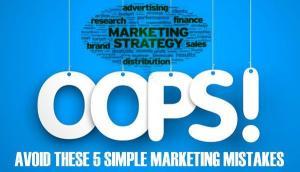 The website without proper SEO [Search Engine Optimization]
The website without proper SEO [Search Engine Optimization] Lack of Google Analytics analysis
Lack of Google Analytics analysis Irrelevant Content
Irrelevant Content 
 By the time smartphones and tabs are introduced digital marketing has touched new heights in this digital era. This era has almost everybody with a social media account and the ones without such an account are literally looked down upon for business purposes. Digital marketing is defined by the use of numerous digital tactics and channels to connect with customers where they spend much of their time: online. So, the query that arises is of studying the consumer behavior in digital marketing.  Digital marketing has created a revolution in the virtual world of marketing. Here the traditional method of marketing doesn’t apply. The client doesn’t feel neglected. Digital marketing focuses on connecting with the target audience. The client feels as he/she is a part of it. We all know that digital marketing is impacting the way we communicate with our consumers. From Facebook ads to Google/Bing Pay per Click to mobile marketing, digital media is taking a bigger and bigger chunk of the marketing budget each year. Let’s look at a few reasons why digital marketing is becoming such an integral part of the marketing pie.
By the time smartphones and tabs are introduced digital marketing has touched new heights in this digital era. This era has almost everybody with a social media account and the ones without such an account are literally looked down upon for business purposes. Digital marketing is defined by the use of numerous digital tactics and channels to connect with customers where they spend much of their time: online. So, the query that arises is of studying the consumer behavior in digital marketing.  Digital marketing has created a revolution in the virtual world of marketing. Here the traditional method of marketing doesn’t apply. The client doesn’t feel neglected. Digital marketing focuses on connecting with the target audience. The client feels as he/she is a part of it. We all know that digital marketing is impacting the way we communicate with our consumers. From Facebook ads to Google/Bing Pay per Click to mobile marketing, digital media is taking a bigger and bigger chunk of the marketing budget each year. Let’s look at a few reasons why digital marketing is becoming such an integral part of the marketing pie. Modern media is no longer confined to a television or radio show, newspaper or advertisement. Instead, today’s media — from text to video and sound — can be saved and shared electronically, using everything from desktop computers to small mobile devices. This electronic dissemination of media has had a powerful impact on the way people communicate for personal reasons, school, and even business.
Modern media is no longer confined to a television or radio show, newspaper or advertisement. Instead, today’s media — from text to video and sound — can be saved and shared electronically, using everything from desktop computers to small mobile devices. This electronic dissemination of media has had a powerful impact on the way people communicate for personal reasons, school, and even business.
 Leading technological edge
Leading technological edge